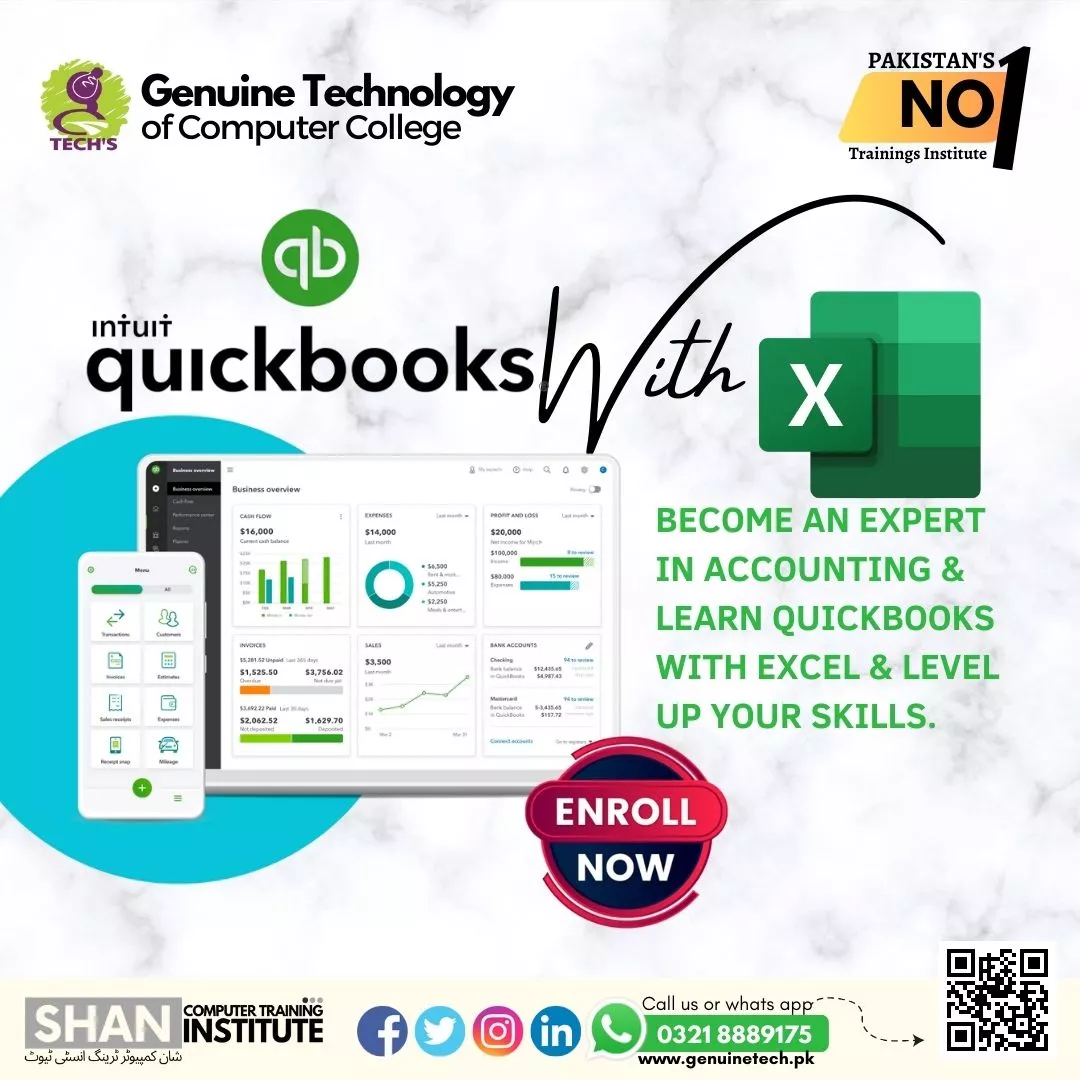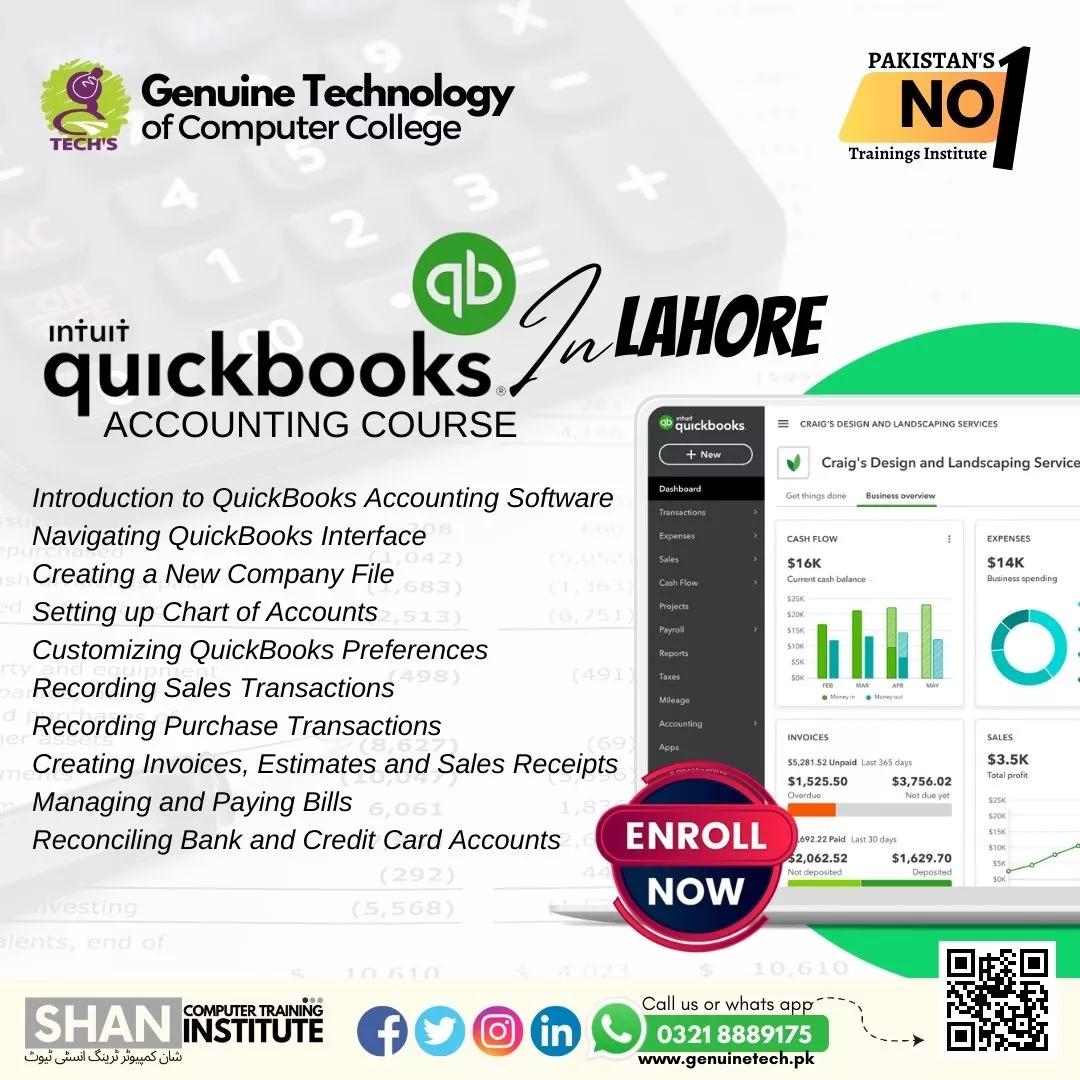The College > Blog > QuickBooks Accounting Course in Lahore Pakistan
QuickBooks Accounting Course in Lahore Pakistan
What is Quickbook course? Shan Institute
QuickBooks is a powerful accounting software which is used by businesses and companies to manage and store their finance, reports, data & necessary documents it is the online account to save or keep things. Genuine Tech is offering the best QuickBooks accounting course in Lahore for candidate in which they can learn each topic from basic to pro level to become a QuickBooks account expert all topics you can learn under the guidance of QuickBooks master and enhance your knowledge their is many career opportunities for candidates after the completion of this course they can start their job in any company or organization and earn money in this QuickBooks training students can learn;
- Basics of QuickBooks introduction and importance
- Learn to manage Accounts Receivable
- Managing Accounts Payable
- Manage Inventory
- Payroll system
- Manage Fixed Assets
- Deal with Budgets
- Advance QuickBooks Features
Genuine Tech is one of the Top Computer College for QuickBooks accounting training for boys and girls you can learn this high in demand computer foundation course physical and online or avail the opportunity to learn how to use QuickBooks online to manage their data and it is the best accounting software for small or large businesses to save the track of their money usage. This is the top QuickBooks courses for beginners as well as for professional to increase their online skills.
Along with this QuickBooks training you can learn the MS Office full foundation course and enhance your skills to start your career as a office manager in reputed companies in which you are responsible for creating high-level documents using MS office applications like MS Excel, MS Word and create presentation slides using MS PowerPoint and become professional office manager expert.
By exploring quickbooks.intuit.com you can get further detail about accounting software and their packages.







